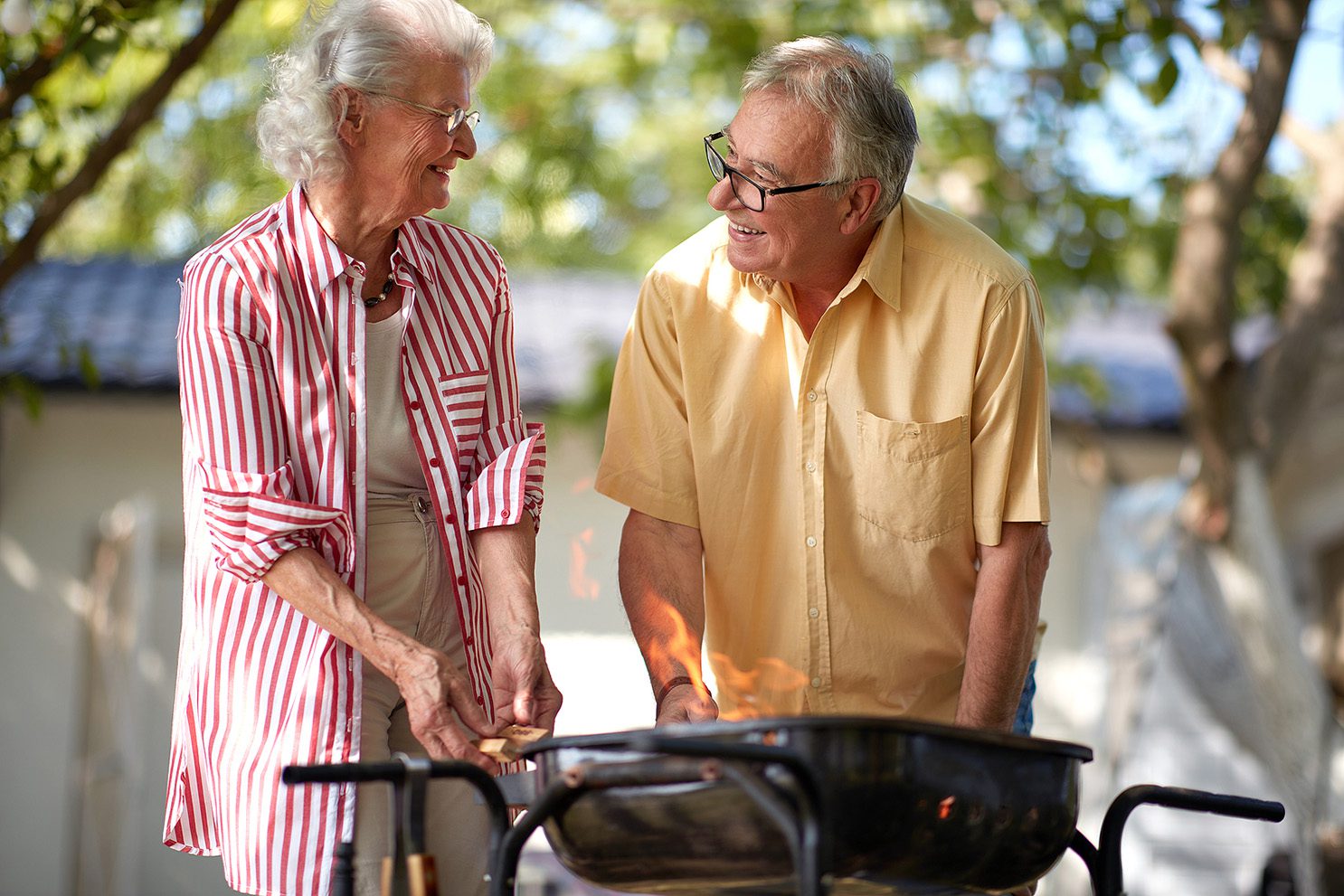For adult children of older adults, it’s not uncommon for one parent to be caregiving for their spouse. One parent typically will take on the role of primary caregiver. Tending to a loved one daily, however, can require a level of energy and time that may put one or both parents at risk.
As older adults, your parents may already be at a higher probability for health issues and it can be helpful for adult children to keep an eye on any changes – and especially for any signs of caregiver stress or burnout. There are steps you can take to help lighten the load of your caregiving parent.
The stress of caregiving for a spouse
While caring for others can be a rewarding experience, providing these services can also be physically and emotionally difficult. If you’re not familiar with the stress of caregiving, consider the following characteristics that your parent may be facing.
- Caregivers often find it difficult to ask for help
When the weight of caregiving falls primarily on one person’s shoulders, it can become overwhelming. Yet many caregivers are reluctant to ask for help. Trying to handle everything themselves may increase their own risk of stress and its negative health effects.
- Caregivers have other responsibilities
It’s rare that the parent providing care for their spouse has no other responsibilities. They may also be handling the shopping, planning and preparing meals, housekeeping, paying the bills, keeping their finances in order as well as scheduling medical appointments for their loved one.
- Caregivers may neglect their own health
Caregivers often neglect their own health while attending to the needs of their loved one. They may cancel or not make regular doctor appointments, not take time to eat healthy meals or no longer participate in physical activities. Not getting enough sleep is another common occurrence.
- Caregiving can lead to feeling overwhelmed
Caring for others is not easy. Depending on the health and needs of the loved one, responsibilities can extend to 24 hours a day. Your parent wants to provide the care but the continued stress and strain can inevitably lead to feeling overwhelmed, tired and even guilty.
- Caregiving can leave no time for previously enjoyed activities
Caregiving may eliminate the time or energy to participate in life as once enjoyed. When simple pleasures are lost, the weight of daily life can become too much. But caregivers often won’t take time away from their loved one to spend on themselves.
How you can help a parent who is caregiving for a spouse
There are several steps your family can take to help the parent who is assuming care for their spouse. Consider these ideas to try:
- Share the responsibility
If you or other family members can pitch in and provide an hour or two of relief, this could allow the caregiver to make a doctor’s appointment, visit a salon or just be able to get out of the house and enjoy time away without worrying.
Find local and community resources, housekeeping, meal deliveries or day programs that could provide a break from the workload of caregiving.
- Help them be realistic about what they can do
Caregivers are often determined to do it all and feel bad if they fall short. It’s much healthier and more manageable to help them set realistic goals for what they can accomplish on a daily basis.
It may also be helpful to cut back on other demands on their time. For example, maybe another family member could be in charge of the big holiday meal or planning the next reunion.
- Provide respite or relaxation opportunities
Let your parent know that respite is not only a relief but a necessity and then help them make arrangements. Knowing they can leave their loved one in qualified caring hands allows them to attend a wedding, take a vacation or just go away for a weekend and relax.
There are options. A few to consider: a family member can come in and stay; in-home care services can be utilized; or a respite stay can be arranged with an assisted living or memory care community that offers that service.
- Watch for signs of burnout and provide support
Caregiver burnout can negatively impact health. Make sure your parent is getting enough sleep, eating healthy, and seeing a doctor when needed.
Signs of burnout can include increased anxiety, frustration, exhaustion and change in appetite. Help them be honest about what they can do, develop tools for coping, take advantage of respite care and get more information on caregiving tips.
- Make sure they know they’re not alone
Caregiving can become isolating. Leaving home might become more difficult and your parent may begin feeling cut off from friends and lose sight of the life once enjoyed.
Let your parent know there are many who care and are there for support. Stop by frequently or call to check in. Recommend your parent join a support group to know there are others who are also traveling this challenging road.
Life at Tapestry Senior Living communities
Helping a parent who is caregiving for a spouse can provide relief, support and comfort and we hope you find these tips helpful for your family.
If the needs are beginning to exceed what your parent is able to provide or if you’re considering other care options, a senior living community could be the right answer.
We invite you to visit one of our communities, where we offer the following benefits – and more:
- Private residences and support for an independent lifestyle
- The joy of maintenance-free living
- Amenities and social events to help quickly build meaningful relationships
- Chef-inspired meals and fitness centers to make staying in shape easy
- Wide choice of activities on-site to challenge your mind – or just to have fun
We understand that choosing the right community is an important decision and are here to answer any questions that you may have. We also invite you to download our complimentary guide Just the Facts: Your Guide to Assisted Living, which can be a resource for families considering help for their loved ones.
If you have any questions or would like to schedule a personal tour, please contact one of our advisors at a community near you.






